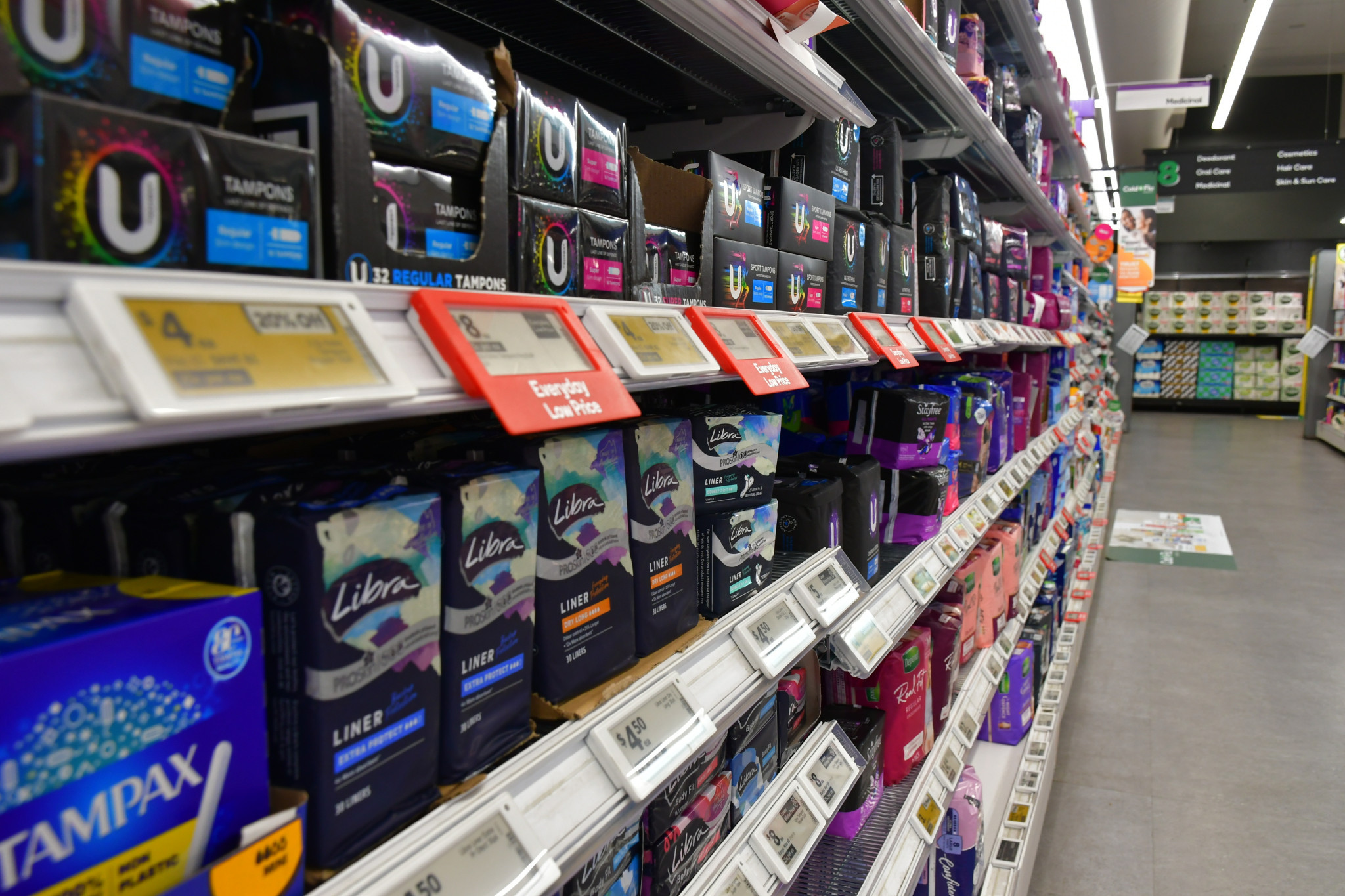General News
10 June, 2025
Local data starts conversation around menstrual inequity and disadvantage
Period poverty is a problem across the nation, in every council area, and the Central Goldfields Shire is no exception.

In the Central Goldfields, two thirds of menstruators find it difficult to afford period products while three quarters have missed school or sport due to their period, recently released data has found.
Share the Dignity, a charity which aims to eliminate period poverty, has contacted every council in the country with localised data from last year’s Bloody Big Survey.
Their Council Cares Program aims to encourage local government to take meaningful steps to combat menstrual inequity in their community.
The charity’s advocacy communications specialist Brittiny Edwards hopes their efforts will break down the stigma surrounding periods and start the conversation in the community.
“If we can’t talk about menstruation there’s no way we’re going to be able to end period poverty,” she said.
The charity has three key recommendations for council: provide free period products, educate the community on menstruation, and offer a reusable period product rebate.
“If you’re on this journey it’s showing you’re a council that cares about your community,” Ms Edwards said.
In the Central Goldfields, that community is one experiencing disadvantage. One that’s likely to be disproportionally impacted by period poverty.
It’s a suggestion reflected in the data with the shire behind the state in every localised category.
MDHS Sexual and Reproductive Advice Clinic’s Sarah Grundy said the data shows period poverty is particularly impacting vulnerable people including those who are Indigenous, gender diverse, homeless, or have a disability.
It means missing out on school, work, sport, and socialising days — a trend Ms Grundy said partially contributes to broader trends including homelessness, poverty, education, and adolescent birth.
“If you miss school days then it effects your education. If you miss work days then it effects your employment and financial security. If you miss out on sport and socialising ... it effects their social connectiveness which flows into their emotional wellbeing,” she said.
According to the Victorian Women’s Health Atlas, the rate of homelessness per 10,000 people was twice as high for women in the shire last year compared to the state estimate (158.7 compared to 90.1).
In 2016, 16 percent of women lived in poverty in the Central Goldfields Shire compared to 13.3 percent in the state.
It’s a context that contributes to 66.67 percent of Bloody Big Survery respondents in the shire, two thirds, finding it difficult to afford period products. Ms Grundy said it means locals are having to make a difficult choice more often.
“When you hit the hard times it’s like what do I prioritise? Do I buy period products or do I buy food for the family or pay the rent,” she said.
In 2021, according to the Atlas, 30.8 percent of women in the Central Goldfields Shire attained Year 12 which is 15 percent lower that the state estimate.
Plus in 2020, the Atlas found over two years there were twice as many adolescent births compared to the state estimate.
It’s data that shows a complex issue. One that contributes to, contextualises and is partially informed by period poverty, as Ms Grundy explains.
“If we can provide quality sexual and reproductive healthcare and education ... if we can strengthen those areas of health literacy and knowledge that then flows into the health and life potential of everyone who menstruates,” she said.
In a positive step to addressing period poverty is the State Government’s $23 million commitment to offer free pads and tampons.
This will be done through 1500 vending machines installed at 700 public sites across Victoria throughout 2025.
The first phase of the project saw 25,000 period products dispensed across metropolitan Melbourne.
Alongside this, and recognising the financial challenges councils face, Ms Edwards hopes the shire will take this opportunity to educate the public on menstruation by pointing them to Share the Dignity’s resources.
“This is a really easy way for [councils] to get involved, show up for [their] community, and say ‘look, these educational resources are there’,” she said.
However, due to Central Goldfields Shire Council not commenting by print deadline, their stance on period poverty and the Council Cares Program remains unclear.
Further information on the State Government’s free pads and tampons program can be found at https://www.betterhealth.vic.gov.au/free-pads-and-tampons
Share the Dignity’s resources on period poverty and menstruation can be found at www.sharethedignity.org.au
Further information on local resources offered by MDHS can be found at mdhs.vic.gov.au/sexual-and-reproductive-health